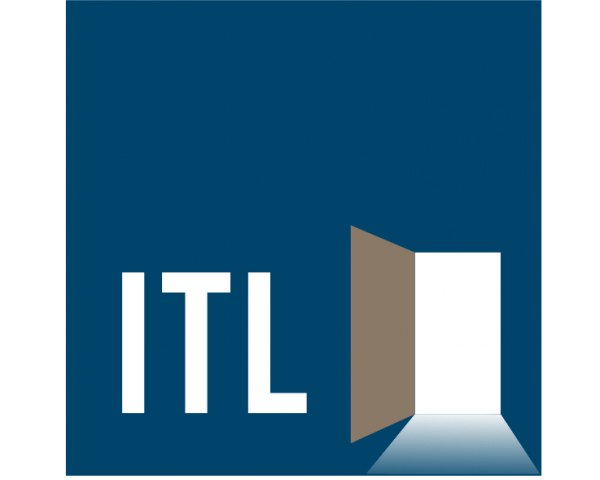To get a different perspective on agents and brokers, ITL Editor-in-Chief Paul Carroll sat down with Jeffrey Lipsius, director of the Inner Game of Sales Leadership and author of “Selling to the Point: Because the Information Age Demands a New Way to Sell.” Drawing on his longtime collaboration with Inner Game guru Tim Gallwey, on his own experience running a major sales organization and on his decades training salespeople, Lipsius explains how the Inner Game can get agents and brokers beyond the Outer Game that almost all of us play at work.
At a very simple level, the Inner Game concept, which Gallwey first articulated in his book on tennis in the early 1970s, says we all have two selves. Self 2 operates at a subconscious level and is the part of the brain that is actually learning things, like how to swing a tennis racquet. Self 2 is playing the Inner Game. Self 1 plays the Outer Game. It kibitzes. It's what's telling you you have a bad backhand and generally making you feel inadequate.
While Gallwey began his work as a tennis instructor thinking he needed to TEACH his pupils, he soon decided that the goal was for the student to LEARN, which isn’t the same thing. He reconceived of himself as a coach, who offers no traditional instruction but who helps people distract Self 1 and steers Self 2 to focus on key variables. That way, Self 2, on its own, can learn as effectively as possible, without the normal pestering from Self 1.
That concept, which is explained in more detail in the introduction to this newsletter, may sound a bit strange for the moment, but it should provide a starting point for what follows, and Lipsius explains in depth.
ITL:
How did you connect with Tim?
Jeffrey Lipsius:
I connected with Tim back in 1974. I was an aspiring tennis pro, and we got to be friends. I didn't make it in the pros, and I had to get a real job, so I went into sales. Over the course of years, I became vice president of the company, so now I had over 100 salespeople under me. I got back with Tim, and I said, Hey, look, we can use my salesforce as a laboratory to practice applying Inner Game techniques. That's how the Inner Game of Selling incubated. Tim and I were going back and forth, looking to see what worked there and what didn't. Eventually, sales increased 10 times using Inner Game principles.
ITL:
To get us going, would you summarize a bit about how you think about the Inner Game, and then how you apply the concept to selling?
Lipsius:
I watched Tim give a tennis lesson to someone who said he had a bad backhand. Tim said, “We’ll worry about that later. For now, just watch the seams of the ball.” He’d have gotten nowhere if he had said, “Your problem is yourself. If you don’t think about your backhand so much, you’ll do much better.” Instead, he steered the person to focus on a key variable, tracking the flight of the ball carefully.
But what is the ball for a salesperson? It’s the customer. And what are the seams of the ball for the salesperson? The customer’s decision process.
The Inner Game of Selling is about coaching customers to make better decisions. The first thing I tell a class is that I’m not going to be their teacher. I’m going to be your coach. I’m going to help you learn how to learn from your customer. Your customer is your teacher.
ITL:
The thinking has long been that insurance is sold, not bought. What sorts of things would you coach a salesperson to observe about me so they can start coaching me to understand my needs better and have me wind up buying insurance?
Lipsius:
The salesperson has to be the learner, not the teacher, and find out what is your definition of value. What is your level of confidence about buying financial products? What are your beliefs and values? What are your priorities?
There's an assumption that you just find out the customer's needs. Well, not every customer knows their needs. Sometimes, the salesperson has to do a little coaching to help the customer get more internally clear about themselves.
ITL:
Are there specific things that you coach the sales folks to do or not do so that they don't get in the way of that discovery process?
Lipsius:
One big thing is helping the customer make the best decision no matter what that decision would be. If the salesperson is thinking that they need to get the sale, then, right away, they’re going to be thinking, “Well, is this going my way, or is this not going my way?” And they’re going to be distracted from what the customer could be teaching them.
All sorts of different sales training systems primarily focus on the conversation between the salesperson and the customer. They say they’ll help you have a better interaction with your customer. That's why a lot of sales conversations look more like an intervention than a sale. Those systems ignore the fact that there’s another conversation going on: the customer's internal decision process.
We get salespeople to realize that your commission check is the result of the customer's buying performance, not your selling performance. If you want to take credit for what you did, you’ll focus on the selling conversation. But if you’re trying to get the customer to buy, which conversation are you focused on? The one inside the customer’s head.
You find out what the customer's situation is and then, in a nonjudgmental way, help them make the best decision for their situation.
ITL:
What you’re saying cuts against some of the attitudes I see. I hear people in the industry talk about how consumers just don’t understand their need for insurance and have to be educated. How much pushback do you get?
Lipsius:
Well, insurance salespeople won’t try something unless they think it would increase their sales. But from an Inner Game perspective, a buying decision is a higher-quality decision, and it’s more sustainable, which is important for keeping policies in force. When the salesperson actually learns the customer’s beliefs and values and priorities and objectives and challenges and can integrate those with the internal environment of the customer, the customer takes a higher degree of ownership for the decision. That’s necessary if they’re going to pay for the policy for years and years, even after the salesperson leaves.
What I’m talking about is kind of the difference between advising and coaching.
ITL:
Insurance agents and brokers often say they want to be a client’s trusted adviser. You’re saying they should really aim to be the client’s coach.
Lipsius:
When the salesperson is trying to advise the customer, the gears are turning in the customer’s head as they advise themselves about whether to take the salesperson’s advice. Most people don’t see that part. They think, I gave the person advice, and they took it, so I must be their adviser. The situation is more complicated than that.
Part of the trouble for salespeople is that many trainers want to be able to take credit for what the salesperson did. After a sales call, the question is: “Did you tell them what I said?” A great salesperson is really good at thinking on their feet, but that’s not a teachable skill. Many trainers try to teach the skill anyway by anticipating all the objections. “This is how you handle this one. This is how you handle that one. This is what you say here. This is how you respond there.” But that can be counterproductive. If the salesperson’s mind is so cluttered with all that material, how can they be watching the seams of the ball?
ITL:
This is great insight. Any final thoughts?
Lipsius:
There is certainly value in much of the training that people get, and they’re selling a lot of insurance. But I hope people can ease into the Inner Game approach, maybe see it as a new tool in their arsenal. You don’t drop your traditional way of selling, but you try an Inner Game approach in certain situations. You’ll see it’s quite powerful.
ITL:
Thanks. I’ve been sold on the Inner Game concept for decades. I hope our readers give it a try.
About Jeffrey Lipsius

Jeffrey Lipsius is the President and Founder of Selling To The Point®, LLC Sales Training and Consulting. He developed the Selling To The Point® sales training method during his 30-years of sales training experience. In the late 1970's Jeffrey pioneered inside selling for the Natural Foods Industry, and trained the first sales force of this type in that Industry. As a result of the success, his selling model is being utilized by many Natural Foods Industry brands.
Jeffrey has trained over 100 salespeople, both inside and outside, as well as sales trainers throughout his career. The salespeople trained by Jeffrey are some of the highest commission earners in their respective industries. Salespeople trained by Jeffrey also cultivate great customer relationships and enjoy their careers as salespeople.
The salespeople Jeffrey trained have cumulatively sold over a Billion dollars worth of products.






